Mehri Yalfani’s stories in The Street of Butterflies feature Iranian women dealing with displacement, cultural change, and struggles for survival and adaptation as immigrants in North America. At the same time, the challenges they face also reveal the racial, gendered and cultural anxieties of these same individuals who carry with them the biases of their country of origin to the norms of the new land. “Soleiman’s Silence,” “Felicia,” “If You Were I,” “Geranium Family,” and “Line,” all portray many dimensions of the migrant’s strive (or the refusal) to build a home, away from home. The stories that are set in Iran contain the complexity of the social and political context after the revolution that deposed the shah. These stories provide a glimpse of life in post-revolutionary Iran, where the new regime that replaced the old one continues the suppression and prosecution of political activists, only more harshly and mercilessly. Anyone who has lived under a brutal dictatorship can easily identify with the paralyzing fear of Sara and Nazar in the story, “Books,” the agonizing wait of Zinat for her disappeared son in “Unexpicable Story,” or the narratives of the ten-year-old child whose activist parents have perished in notorious prisons of the Islamic regime in “Where is Paradise?”
“Mehri Yalfani’s stories in this new collection, The Street of Butterflies, are part of her growing repertoire of the travails and triumphs (more the former than the latter) of displacement, cultural change, and struggles for survival and adaptation. The stories, at the same time, judiciously reflect the racial, gendered, and cultural hang-ups of these same individuals who carry with them their old land’s biases and fixed norms to the new land. This book is a welcome addition to the genre of works written by authors writing in a language not their own, who have come, or try to come, to terms with the complexity of language and culture.”
—Haideh Moghissi, Professor Emerita and Senior Scholar, York University, Toronto
“Mehri Yalfani’s collection of short stories touched me with their nostalgic and vital quality. These accounts of the joys and difficulties that people from different cultures face as they learn to adapt to their new home give readers an important glimpse into how people deal with the daily tensions of living in two cultures, and made for compelling reading.”
—Nasreen Pejvack, author of Amity
“The Street of Butterflies is a collection of poignant stories that need to be shared. Mehri Yalfani is unflinching as she draws readers into the lives of women who long for safety as they live in fear of arrest, abuse and the confines of patriarchy. Those who manage to escape are confronted with the challenges of assimilation and sexism as well as cultural and economic hostility. These tales are presented with searing honesty, drawing readers into an encounter with authentic characters who are navigating critical issues and circumstances.”
— Lucy E.M. Black, author of The Marzipan Fruit Basket and Eleanor Courtown
Mehri Yalfani was born in Hamadan, Iran. She graduated from the University of Tehran with a degree in electrical engineering and worked as an engineer for twenty years. She immigrated to Canada in 1987 with her family, and has been writing and publishing ever since. Four novels and two collections of short stories written in Farsi, her mother language, were published in Sweden, the U.S. and Canada. Her novel, Dancing In A Broken Mirror, published in Iran, was a finalist for the “Book of the Year” in 2000. She has published several books in English, including Parastoo: Stories and Poems (1995): Two Sisters (2000); and Afsaneh’s Moon (2002). A Farsi version of Afsaneh’s Moonwas published in Iran in 2004. A volume of poetry in Farsi, Rahavard, was also published in 2004. Her short fiction has appeared in a number of American and Canadian anthologies. She lives and writes in Toronto.
From “Books”
Nozar opened the door of the house and peeped into the alley. Streetlights were off but there were lights on in some houses and their front yards, though they barely lit the alley. Because there hadn’t been any air attacks for a few months, some neighbours didn’t care about the war—carried on between Iran and Iraq in Khuzestan, almost one thousand kilometres from Tehran. Nozar was breathing hard from lugging five big garbage bags full of books down the stairs in three trips. The car had been parked a few meters away from the front door; he started the engine, put the car in reverse and drove backward to be as close as possible to the entrance, then placed the bags one by one inside the trunk, as quietly as possible.
Sara was sitting on the stairs, watching Nozar’s ordeal. She was wearing a loose flowered cotton dress with short sleeves and was as mute as if she were dumbfounded. With her hair tied at the back of her head, her sunken eyes looked bigger. Her silence and her frightened expression were extra burdens on Nozar, who was preoccupied by what he was doing. With a few days’ growth of whiskers, his complexion looked darker and he appeared older; his tall, sturdy body was wet with sweat and hunched slightly. He looked at Sara, sitting on the stairs, watching him with desperation. He softened his voice and said, “You’d better go upstairs and rest. You need…”A passing car cut out Nozar’s words. He listened carefully until the noise faded away. With the same calm, soothing tone he continued, “I’ll finish the job in an hour and come back. I promise.” He continued ferociously, “These wicked books! We should get rid of them. They are the reason for our…”
The sound of faraway shooting stopped him.
Sara couldn’t bring herself to say a word—she just smiled anxiously. …Nozar closed the trunk of the car quietly and came back into the house. She stood up, her hands in her pockets, and let Nozar hug her, kiss her forehead and lips, but she was remote. Looking in her eyes, he added, “Don’t worry. Many people are doing the same. Everybody is throwing away the book that might cause them problems. Farahzad’s and Varamin’s ditches or even Shahre Ray and the roads out of Tehran are full of books. I won’t go very far.”

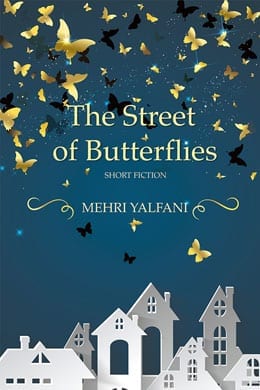
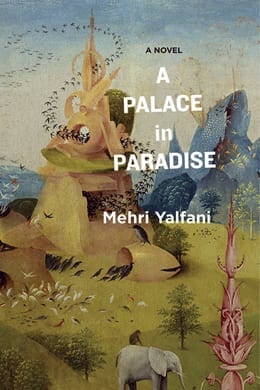
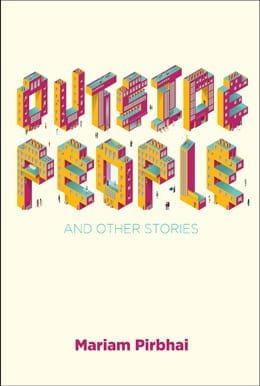
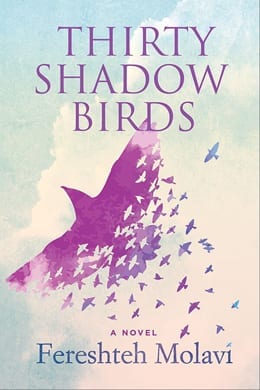


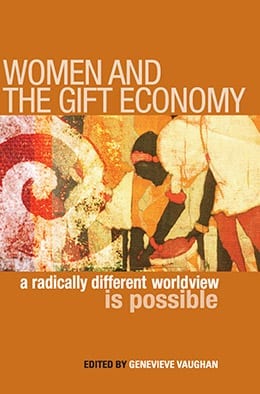
inannaadmin –
The Street of Butterfliers by Mehri Yalfani
reviewed by The Miramichi Reader – October 27, 2017
http://www.miramichireader.ca/2017/10/street-of-butterflies-review/
Mehri Yalfani was born in Hamadan, Iran. She immigrated to Canada in 1987 with her family and has been writing and publishing ever since.
The Street of Butterflies (2017, Inanna Publications) goes well with another book of short fiction I recently reviewed (also from Inanna), Outside People. They are stories told from the point of view of those that have left their birth country for Canada, or have chosen to stay while others have left looking for more freedom and other opportunities. Ms Yalfani, being from Iran gives us a look at what life was like after the revolution and the Iran-Iraqi war of 1980-88. Fifteen stories of people living in fear in Iran, fearful of leaving Iran to come to Canada, questioning their decisions and trying to live with the consequences.
Some Highlights
The very first story, “Books” is the most suspenseful. It is the story of a couple, Nozar and Sara living in Iran who feel they must get rid of books that “may cause them problems”. Nozar tells Sara:
Don’t worry, many people are doing the same. Everybody is throwing away the books that might cause them problems. Farazhad’s and Varamin’s ditches […] and the roads out of Tehran, are all full of books people have thrown away. I won’t go very far. So, I’ll be back soon.
However, hours go by and Nozar hasn’t returned. Sara begins to think the authorities have arrested Nozar and she will never see him again. Every car that goes by their house makes her think it may be Nozar returning.
Cars passed by in the street, but the apartment was quiet. Even though she was certain that Nozar would not be back, she could not quell the flutter of hope inside her.
Also fluttering inside her is their unborn child, which adds more tension to the story.
My favourite was “A Suitable Choice” which is told in three different voices: Gholem, who is living in Canada with his friend and room mate Kamyar and Sima, the newly arrived bride of Gholem whom she is meeting for the first time in Canada. At the airport, Sima sees the handsome Kamyar, who is her age and thinks he is to be her husband while Gholem who is older is a friend that came with Kamyar. When Gholem hands her a bouquet of flowers, she realizes the choice she has made:
Everybody called it “a suitable choice”. What a choice!
Each one absolves themselves of any fault that Sima likes Kamyar better and is bored with Gholem. It is a slightly humorous tale, but is sad too, as Sima’s dreams, after coming so far, get shattered.
Conclusion
Inanna Publications has a knack for finding and publishing works by authors who have roots in other countries, and as in the case here with Ms Yalfani, write in a language other than English, then translate it to English. She confides to us in the story “Heart’s Language”:
I still have a long road ahead of me, a path on which perhaps English will gradually become bright and clear as a language for writing, and then I can perhaps internalize it like my mother tongue [Farsi] – the language of my heart.
As was the case with Outside People, I greatly enjoyed these stories, and more importantly, learned more about a culture I was heretofore not that familiar with. Well done, Ms Yalfani!